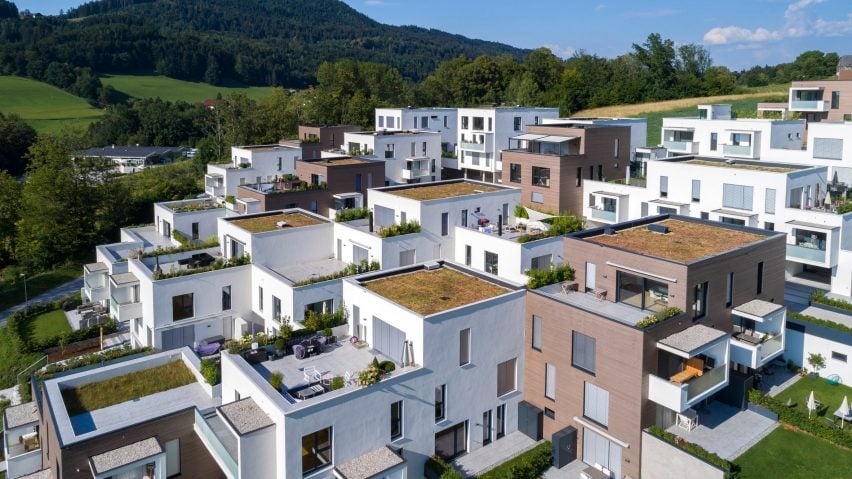Dezeen promotion: Europe's largest roofing and waterproofing company BMI Group produces numerous products that help architects to create more sustainable buildings.
Following its recently published report The Architect Effect, BMI Group is highlighting products that provide architects with more sustainable options, whether designing flat or pitched roofs.
According to the roofing company, sustainability is an area where construction can make huge improvements.
"It is clear that there's a huge desire to make the necessary changes – we're seeing more and more innovative thinking across the industry and momentum is increasing," said BMI Group.
"Increasingly, we're seeing that clients are also seeking evidence of sustainability from manufacturers at both product and organisational levels," it continued.
Among BMI Group's range of sustainable products is an anti-pollution membrane. The Noxite flat roof membrane converts harmful nitrogen oxides (NOx), which are mainly the result of traffic pollution, into harmless nitrates.
The membrane uses a photocatalytic ingredient to break down pollutants, which are washed away by rainwater. This also refreshes the catalyst, so it continues to work throughout the life of the material.
BMI Group offers a range of blue and green roofs that allow an often under-utilised space to be used as parks, urban farms and havens for wildlife.
These roofs can also improve the sustainability of the building below by providing a layer of insulation while improving the air quality outside.
"There are few roof systems more sustainable and multi-purpose than a green or blue roof," said the brand.
"Green roofs have an insulating effect, reducing the energy needed to heat a building in winter and cool it in the summer. The plant life can filter pollution, absorb CO₂ and improve air quality, as well as be great habitats for wildlife."
The roofing brand also provides solar energy solutions that allow a building's roof to be productive. Using its Sunscape range, which is suitable for both pitched and flat roofs, solar panels can produce around 70–80 per cent of the electricity required to power a building.
Another more sustainable product is the brand's range of lightweight concrete tiles that are produced using BMI Group's Aerlox technology.
The tiles are made with reduced amounts of concrete, meaning that each tile has a lower level of embodied carbon. As they are lighter than regular tiles they can also be transported more efficiently, requiring less fuel.
More information on BMI's sustainable roofing solutions can be found on its website.
Partnership content
This article was written by Dezeen for BMI Group as part of a partnership. Find out more about Dezeen partnership content here.

